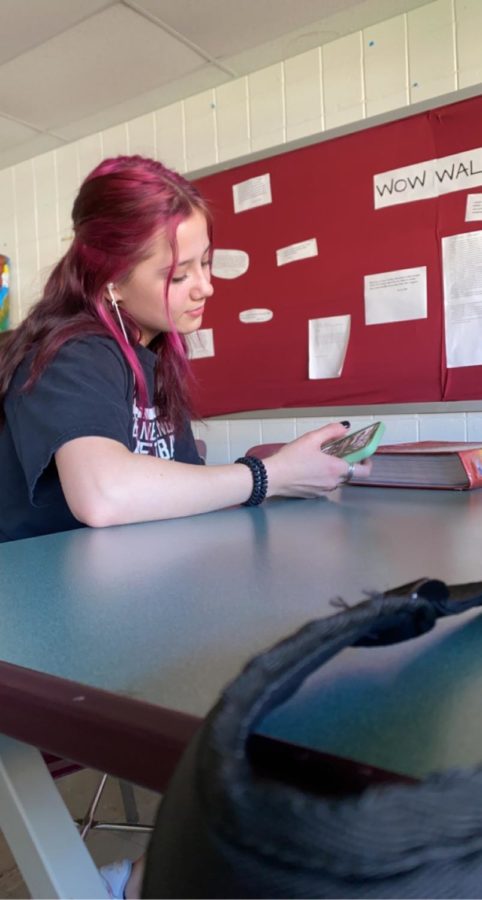Cellphones in the Classroom: and Ongoing Debate
June 6, 2022
Most teenagers can agree that they are addicted to their phones. These addiction problems can end up affecting a student’s performance in school. Inside sources at LHS describe their outlooks on how phones are affecting the school environment.
How Exactly Are Phones Affecting Students in School?
An immediate and standard answer to this question would be that phones only affect students in a negative way. However, junior Mert Yanbul said, “It doesn’t affect my grades. I’m not on it too long.” He said that an occasional and short period of time on your phone during class doesn’t affect a student’s grades.
However, although some students are able to handle their phone usage during school, most cannot. Many studies have investigated the so-called “downstream” effect of cell phone presence on learning. According to edutopia.org, students who split their attention between a learning task and texting on their cell phones, or just accessing any social media app, perform poorly when compared to students who are not dividing their attention.
Social media apps are proven to drag users in and they end up losing track of time with each and every scroll. This can easily drag people into turning what they think was only 10 minutes onto the app into what feels like the quickest 30 minutes possible. This can quickly turn into addiction without the user even knowing.
This can easily make its way into the workplace and even inside the classroom. What happens if these 30-minute usages make their way into the classroom? Does this eventually just turn into a sign of disrespect towards the teachers? These questions were taken to Mr. Cangemi, an LHS teacher in the English department. “The phones are a huge distraction; this obviously makes it difficult to teach. It’s a little frustrating.”
Phones have brought out frustration in many teachers within LHS. With no changes being made, it’s left people to think if a change is ever going to be made.
What Can Be Done?
Across the country changes to the high school, and phone policies are being made. Recently, Chicopee High School modified its cell phone policy by implementing a “no-phone” rule. Students are supposed to hand in their phones as they walk into the school. They are put into a little pouch and stored away until the end of the day.
This total remodel to their phone policy brings along a couple of problems. Important family text messages that they receive during school hours or updates to their after-school plans will be received by the student until the end of the day. This can frustrate students as it really limits their communication during school hours.
Cons like these are some of the issues that almost swayed administrators from wanting to implement it. Even Ludlow High School’s interim principal Mr. Mitchell expressed how he was initially “iffy” on Chicopee High School’s policy but now “would love for Ludlow High School to implement something similar.”
Although it is frustrating for students, school administration from both Chicopee and surrounding towns are acknowledging the benefits of the no-phone policy.
When a Chicopee High teacher was asked about how this new cell phone policy is working in her classroom, she told MassLive she has seen an increase from an average quiz grade of 40% to an average of 70%. A history teacher reported students had been participating more and doing better in their group work. Another math teacher has found students who have done nothing all year are now completing assigned work.
All of these improvements have taken place over the past month since the implication of the policy. With its obvious benefits, it makes surrounding schools start to wonder if they should apply the same rule.
But taking phones out of the student’s school day does more than just better them academically. Numerous Chicopee High School teachers have indicated that they can see the mental health of students improve over the past month. Yet again this makes it just seem even better for the other schools who are thinking about doing the same thing.
“I think it would have so many benefits to our school as a whole, individual student achievement, increase the overall mental health of our students, and so much more,” said Mr. Mitchell. This all leaves Western Mass students waiting to see if their school will end up following after Chicopee High School.
The cellphone debate is an ongoing issue and it will be interesting to see if and how LHS creates policy. All future developments will be reported here The Cub.


